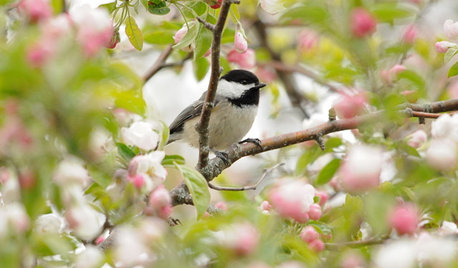In like a lion - March reading
J C
9 years ago
Related Stories

PRODUCT PICKSGuest Picks: In Like a Lion, Out Like a Lamb
Whether regal or sweet, one of March's animals will work with your home's décor
Full Story0

PRODUCT PICKSGuest Picks: In Like a Lion, Out Like a Lamb
Take a cue from the classic adage about March with home accessories that call these animals to mind
Full Story
EVENTSDesign Calendar: Feb. 24–March 16, 2012
Visit David Stark's pop-up Wood Shop, the Philadelphia International Flower Show and more
Full Story0

EVENTSDesign Calendar: March 17–April 5, 2012
See artwork in bloom, learn about handmade wallpapers, get inspired by Buckminster Fuller and more
Full Story0

HOUSEKEEPINGTo-Dos: Your March Home Checklist
It’s time to rid yourself of winter’s heaviness and set up for spring
Full Story
HOUSEKEEPINGMarch Checklist for a Smooth-Running Home
Get a jump on spring by spiffing up surfaces, clearing clutter and getting your warm-weather clothes in shape
Full Story
SPRING GARDENINGSpring Gardens Are Waking — Here’s What to Do in March
Excitement fills the air when gardens come back to life. These guides will help you make the most of yours
Full Story
REGIONAL GARDEN GUIDESCalifornia Gardener's March Checklist
Give natives and tropicals a well-deserved spotlight — plus, discover an easy herb that keeps on giving
Full Story
NORTHWEST GARDENINGPacific Northwest Gardener's March Checklist
Prepare for edible harvests and invite feathered friends to the garden — offering them slugs for lunch is entirely up to you
Full Story
LIFEHouzz Call: Where (and What) Are You Reading This Summer?
Whether you favor contemporary, classic or beach reads, do the long and lazy days of summer bring out the lit lover in you?
Full Story


netla
vee_new
Related Discussions
The lion roars while we settle down to read
Q
March is coming in like a lion...
Q
March Reading - coming in like a lion
Q
March "comes in like a lion and goes out like a lamb"??
Q
cacocobird
carolyn_ky
annpanagain
netla
annpanagain
dedtired
sheri_z6
vee_new
carolyn_ky
carolyn_ky
sheri_z6
reader_in_transit
carolyn_ky
friedag
annpanagain
vee_new
netla
Rosefolly
friedag
vee_new
woodnymph2_gw
vee_new
carolyn_ky
friedag
annpanagain
netla
annpanagain
woodnymph2_gw
Rosefolly
annpanagain
annpanagain
annpanagain
sheri_z6
carolyn_ky
bigdogstwo
annpanagain
sherwood38
merryworld
vee_new
woodnymph2_gw
reader_in_transit
carolyn_ky
annpanagain
carolyn_ky
vee_new
vee_new
annpanagain
bigdogstwo